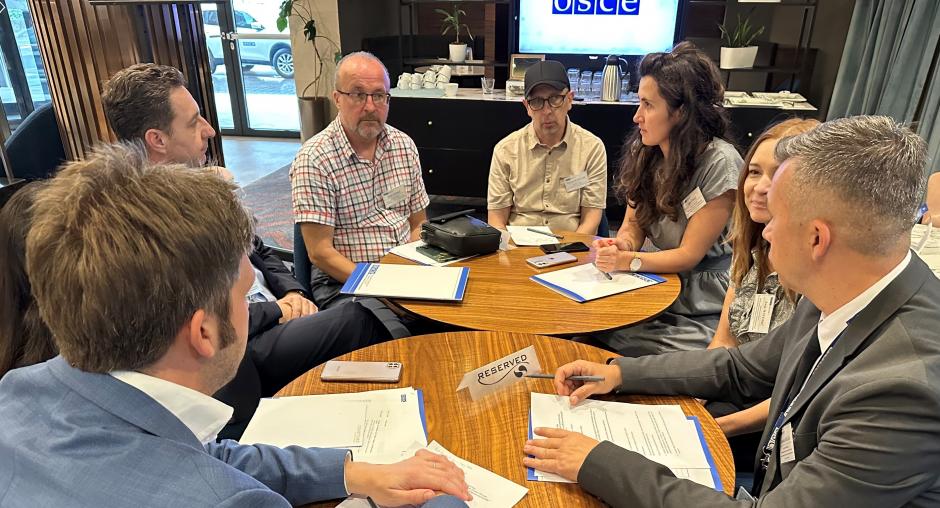OSCE initiates regional dialogue in South-Eastern Europe on interconnections of climate change, air pollution and health, inspiring local action

On 21 September, 40 participants representing municipalities, civil society organizations, and academia from South-Eastern Europe convened in Sarajevo to discuss the impacts of climate change and air pollution on health, and to explore local solutions. The meeting was organized by the Office of the Co-ordinator of OSCE Economic and Environmental Activities (OCEEA) in collaboration with the OSCE Mission to Bosnia and Herzegovina.
The OSCE-adelphi report Regional Assessment for South-Eastern Europe: Security implications of climate change identified air pollution as a major challenge in the region, underscoring its profound health ramifications. Coal power plants emerge as primary air pollution hotspots in the region, followed by cities and urban areas. Climate change, in turn, aggravates air pollution through elevated ground-level ozone and particulate matter levels. This complex interplay between air pollution and climate change poses significant health and livelihood concerns.
“As real issues affecting people’s lives, addressing climate change, air pollution and public health challenges should be a top priority for our region’s high-level decision makers,” said Brian Aggeler, Head of the OSCE Mission to Bosnia and Herzegovina, during his opening remarks. “This meeting is a great opportunity to learn from each other, to hear about successful initiatives from the region and beyond and to strengthen partnerships as we address common challenges,” he added.
“Today, we are launching a regional initiative in South-Eastern Europe to connect municipalities, civil society organizations and academia, fostering collaboration to reduce the health impacts of air pollution and climate change,” said Esra Buttanri, Senior Climate Change Adviser at OCEEA. “The concrete project ideas crafted by stakeholders today will serve as the foundation for this collaboration, while also nurturing good neighborly relations.”
Scholars from Imperial College London and the University of the Peloponnese, alongside experts from UNECE, UNICEF, and the Swedish Environmental Protection Agency, contributed their invaluable expertise and insights to the discussion.
The regional kick-off meeting “Climate change and security in South Eastern Europe: Tackling challenges at the interface of air pollution and health” was organized within the framework of the OSCE extra-budgetary project “Strengthening responses to security risks from climate change in South-Eastern Europe, Eastern Europe, the South Caucasus, and Central Asia”, which is implemented by OCEEA in partnership with adelphi and funded by Andorra, Austria, Czech Republic, Finland, France, Germany, Italy, Japan, Liechtenstein, Luxembourg, Norway, Poland, Sweden, Switzerland and the United States. The project is part of the OSCE’s active effort to support its participating States in implementing the 2021 OSCE Ministerial Council Decision on climate change.
